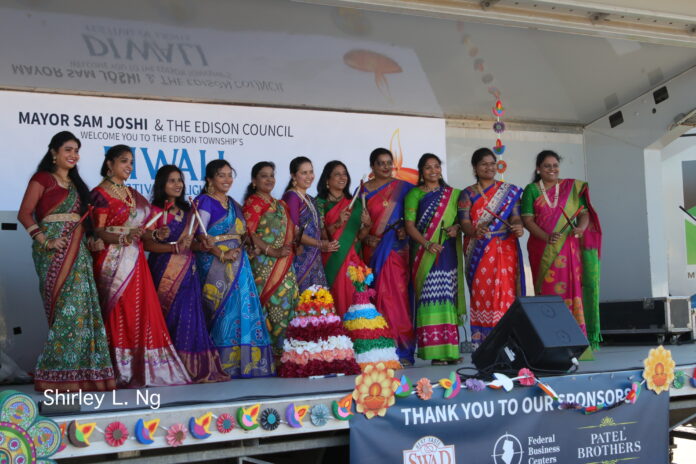A recent Carnegie study reveals a historic downtick in Indian Americans’ attachment to the Democratic party ahead of the November election, with 6 in 10 intending to vote for Harris.
More than 5.2 million people of Indian origin reside in the United States. Based on 2022 data, an estimated 2.6 million Indian Americans qualify as eligible voters. Furthermore, this rapidly growing demographic is known as “high propensity” voters, suggesting that 96% of registered voters are likely to turn out in November’s elections. With polls showcasing a tight presidential race, every vote counts.
The survey shows that 47% of respondents identify as Democrats, down from 56% from the first survey conducted in 2020. Meanwhile, the number of Independents has increased to 26%, and Republican identification has remained steady at 21%.
However, when considering which party Independents favor, a decline in Democratic preference is offset by Republican growth. Despite the shift, more voters identify with the ideological left.
Additional details of findings are listed below
There is a noticeable gender gap
Though Indian Americans will continue to favor the Democratic Party, as historically shown, one in three respondents intend to vote for the Republican nominee. It is reported that young, American-born men are driving this shift towards Donald Trump.
The gender gap in voting preferences is striking: 67% of Indian American women and 53% of Indian American men will vote for Harris, while 22% of women and 39% of men lean towards Trump. This gap is most pronounced among younger voters.
Abortion emerged as a top-tier issue
Abortion has taken center stage as a crucial policy issue, particularly among Democrats and women. Currently, it ranks second among voter concerns, behind inflation/prices and tied with the economy/jobs.
Republican disadvantage lies in policy
Overall, voters’ behavior hinges heavily on policy platforms rather than personal attributes. Many oppose the Republican party due to their “intolerance of minorities, its stance on abortion, and ties to Christian evangelicalism above all.”
Indian Americans hold lukewarm views toward prominent Indian American Republicans
Indian Americans have unfavorable views of prominent Republican Indian Americans, but there is evidence of asymmetric polarization: Democrats rate Republican leaders worse than Republicans rate Democratic leaders.
Many factors point to an increase in attention to this demographic.
- The population growth of Indian Americans’ is significant, with studies indicating an increase of 50% between 2010 and 2020. They represent the second largest group of immigrants by country of origin, next to Mexican Americans. Known for their “high propensity” voting patterns, political leaders actively seek to secure their support.
- The community’s socioeconomic status and shift in origin contribute to increased attention from both parties. The median household income for Indian Americans is roughly $153,000, more than double the average for the US. Additionally, the group holds higher educational degrees. For these reasons, both parties have battled for the community’s support. Moreover, as the population increases, new voters are “less likely to be guided by deeply entrenched partisan beliefs relative to those born in the United States.” This implies that either party could potentially sway Indian Americans.
- Kamala Harris’s Indian heritage may enhance her appeal among Asian voters. Studies show that Indian Americans often favor candidates who share their ethnicity.
- There is evidence that Asian Americans are shifting their loyalties to the Republican party. In recent election data, Asian Americans are observed to have weaker attachments to political parties.
This 2024 survey builds upon the first-of-its-kind study conducted in 2020 by Sumitra Badrinathan, Devesh Kapur, and Milan Vaishav at the Carnegie Endowment for International Peace. It aimed to empirically analyze and define the rising political profile of Indian Americans by examining the community’s “political, social, and foreign policy attitudes.”
This year’s follow-up, in partnership with research and analytics firm YouGov, is a nationally conducted survey with 714 participants between September 18 and October 15, 2024. The survey has a margin of error of +/- 3.7 percent.
AsAmNews is published by the non-profit, Asian American Media Inc.
We’re now on BlueSky. You can now keep up with the latest AAPI news there and on Instagram, TikTok, Facebook, YouTube and X.
We are supported by generous donations from our readers and by such charitable foundations as the Robert Wood Johnson Foundation.
You can make your tax-deductible donations here via credit card, debit card, Apple Pay, Google Pay, PayPal and Venmo. Stock donations and donations via DAFs are also welcomed.


